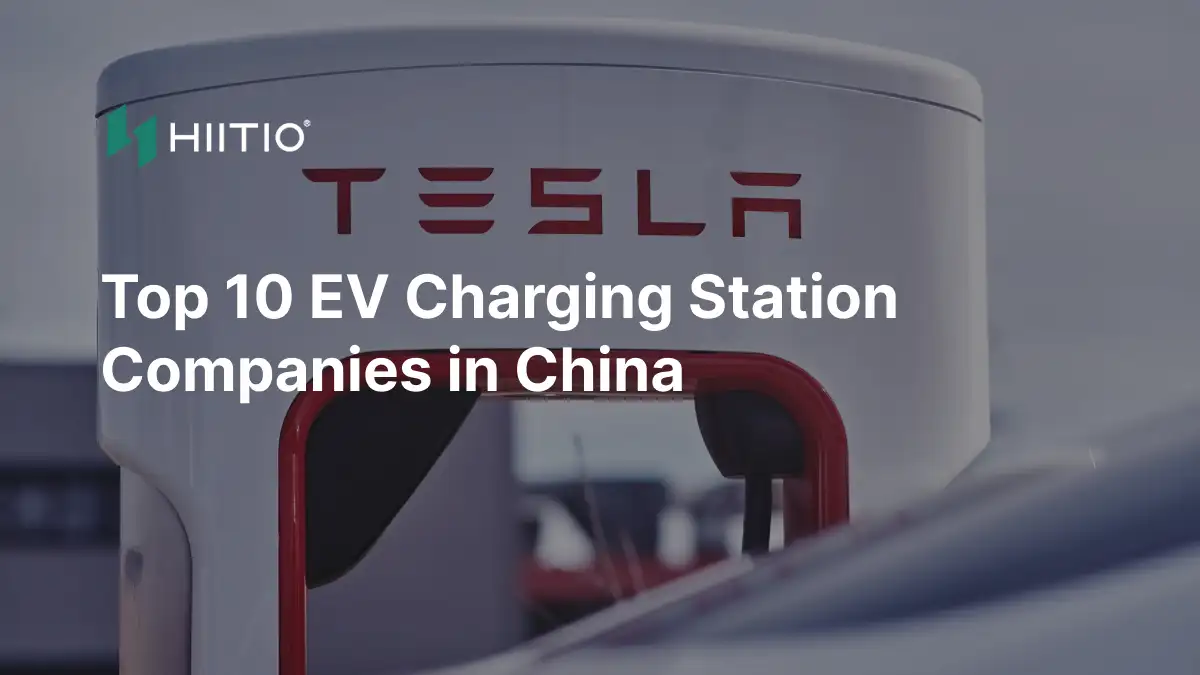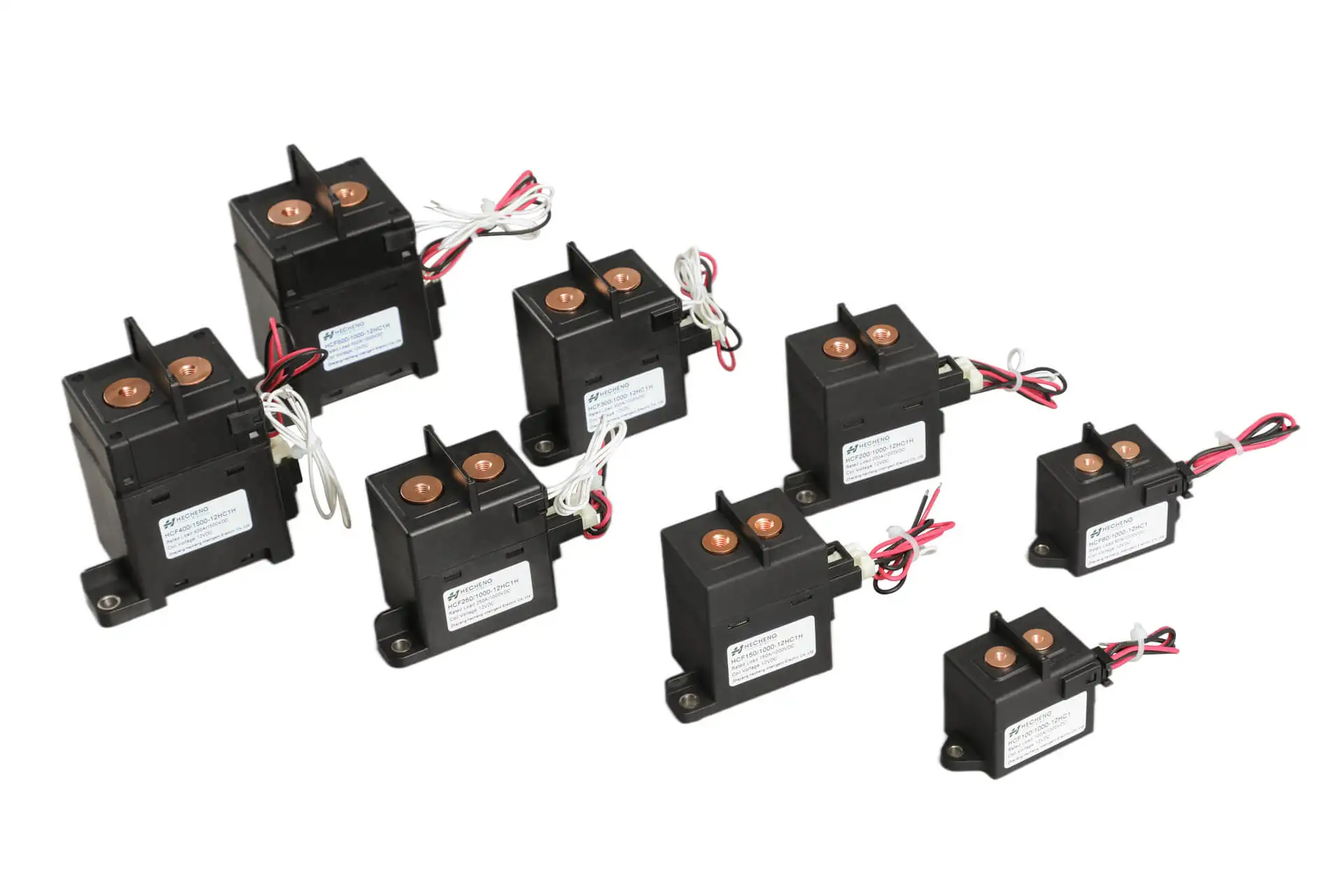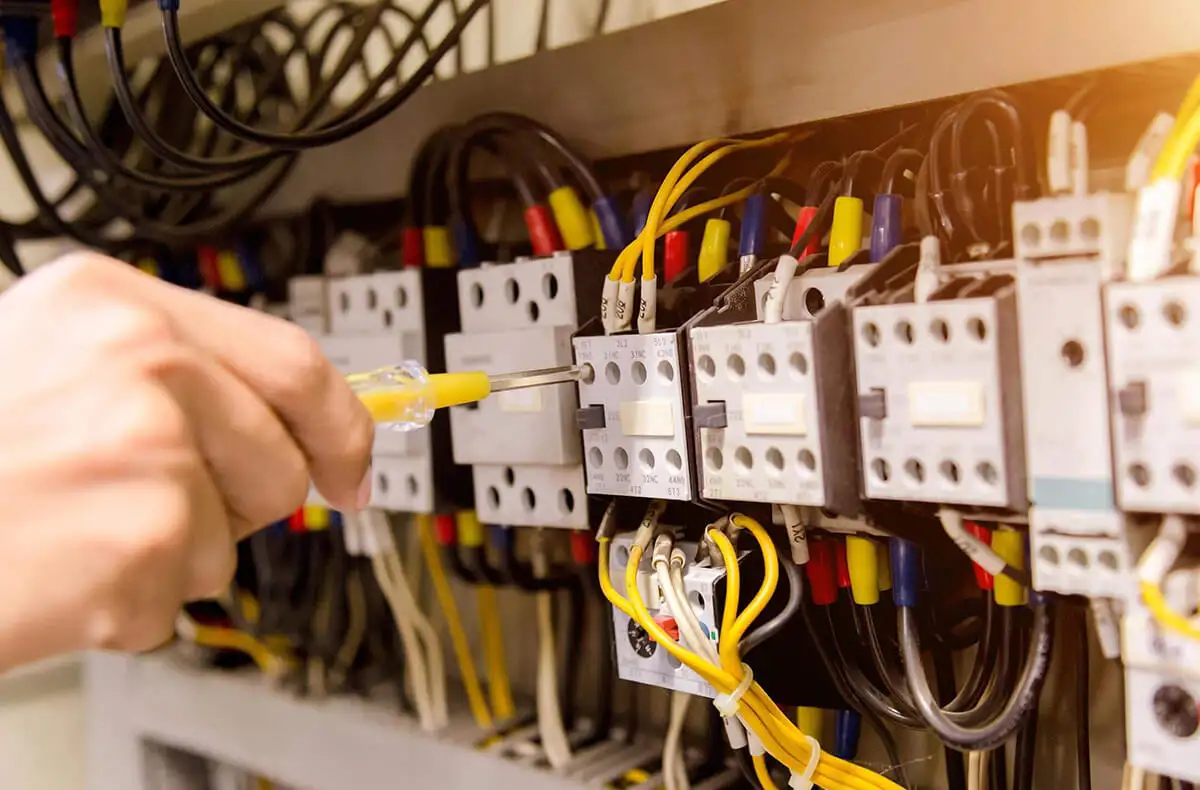Introduction
The importance of EV charging companies will only continue to grow, as there are over 2.3 million charging stations in the world, and the number of them will increase from year to year.
According to Fortune Business Insights, the worldwide market for electric vehicle charging stations is predicted to experience a compound annual growth rate (CAGR) of 30.26%, increasing from 17.59B USD in 2021 to 111.90B USD in 2028.
What’s the EV Charging Station:
An Electric Vehicle (EV) Charging Station, also known as an EV charger or charging point, is a physical infrastructure where electric vehicles can be plugged in to recharge their batteries. EV charging stations come in various types and capacities, catering to different charging needs and speeds.
There are primarily three types of EV charging stations:
Level 1 Charging Stations:
These are basic charging stations that use a standard household outlet (120 volts AC) to charge the vehicle’s battery. Level 1 chargers are typically slow and are suitable for overnight charging at home or in workplaces where vehicles are parked for long durations.
Level 2 Charging Stations:
Level 2 charging stations use a higher-voltage power source (usually 240 volts AC) to deliver faster charging compared to Level 1 chargers. These stations are commonly found in public places, commercial buildings, and parking lots. Level 2 chargers can charge an EV at a rate of around 10-60 miles of range per hour, depending on the vehicle and charger specifications.
DC Fast Charging Stations (Level 3):
DC fast chargers are the fastest type of charging stations available. They use direct current (DC) to rapidly charge the vehicle’s battery, significantly reducing charging times compared to Level 1 and Level 2 chargers. DC fast chargers are typically found along highways, major travel routes, and in urban areas, enabling long-distance travel for electric vehicles. They can provide around 60-80% charge in just 20-30 minutes, depending on the vehicle and charger capabilities.
EV charging stations may also vary in terms of connectivity, payment methods, and network compatibility. Some charging stations are equipped with smart features, allowing users to monitor charging sessions remotely via mobile apps and providing real-time data on charging status and energy consumption
Top 10 EV Charging Station Companies in China
Tesla:

In China, Tesla is leading the way in electric vehicle charging. They’ve built over 1,500 Supercharger stations and 10,000 plugs across the country. Plus, there are more than 700 destination charging stations with over 1,900 connectors. Tesla offers various charging options like home chargers, Superchargers on the road, chargers at places like hotels and restaurants, and even mobile chargers. This ensures that Tesla drivers can easily charge their cars wherever they are.
State Grid Corporation of China:

State Grid Corporation is a leader in China’s power industry. They specialize in distributing electricity and building infrastructure. State Grid New Energy Vehicle Service Co., Ltd., a subsidiary of State Grid Corporation, helps to set up and manage electric vehicle charging stations nationwide. This helps ensure that EV users have access to reliable and a widespread network of charging stations.
ABB:

In the late 1800s, Swedish and Swiss electrical engineering firms merged to form ABB. Since then, ABB has become a major player in industrial technology globally. ABB concentrates on energy, factory efficiency, and smart solutions for industries. Lately, they’ve been focusing on creating charging stations for electric cars. This aligns with the trend of using more renewable energy sources.
ABB has invested heavily in this area and now offers different types of charging stations. Some charge quickly, while others are smart and can manage to charge better. ABB’s charging stations are available in car factories, public areas, and parking lots. This makes it easy and convenient for electric car owners to charge up quickly.
XJ Group Corporation:
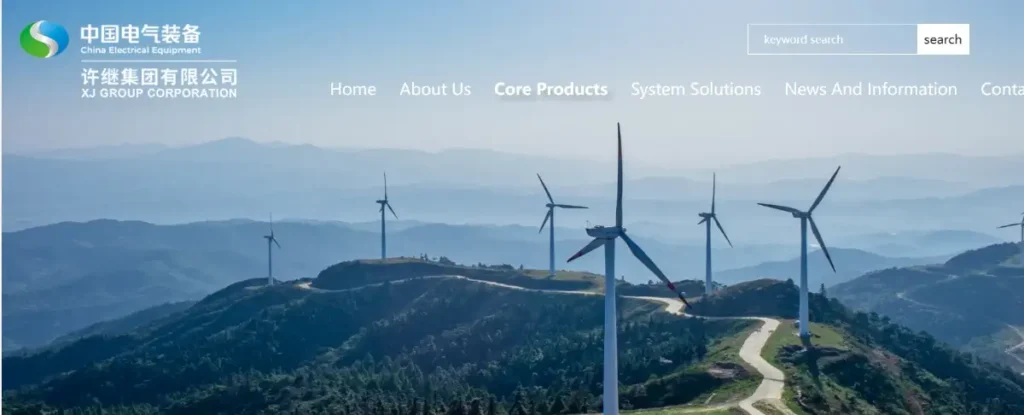
XJ Group Corporation is a top manufacturer of charging stations in China, based in Zhejiang Province. They focus on making high-quality charging stations to help more electric cars hit the road.
With advanced factories and a skilled team, XJ Xujie Company works hard to create new and better charging station technology. They offer different types of charging stations, like ones that charge fast or ones for specific situations.
You can find XJ Xujie Company’s charging stations in many places, like parking lots, neighborhoods, and public areas. They make it easy for electric car drivers to charge up quickly and conveniently. They improve products for electric car users and help the electric vehicle industry grow.
Potevio New Energy Co., Ltd:

Potevio New Energy Co., Ltd. is a part of the Potevio Group in Beijing, China. It’s vital in the electric vehicle (EV) charging station sector. Potevio New Energy Co., Ltd. is in Beijing, China, and it’s a part of the Potevio Group. It’s important in the electric vehicle (EV) charging station sector. New Energy focuses on making EV charging stations and related solutions.
They research, develop, produce, and sell these products. They have advanced technology teams and manufacturing facilities to drive innovation. Their charging station products include AC chargers and DC fast chargers for various situations. The charging stations are in parking lots, public places, and neighborhoods. They offer efficient and convenient charging for EV users.
LuCharge:
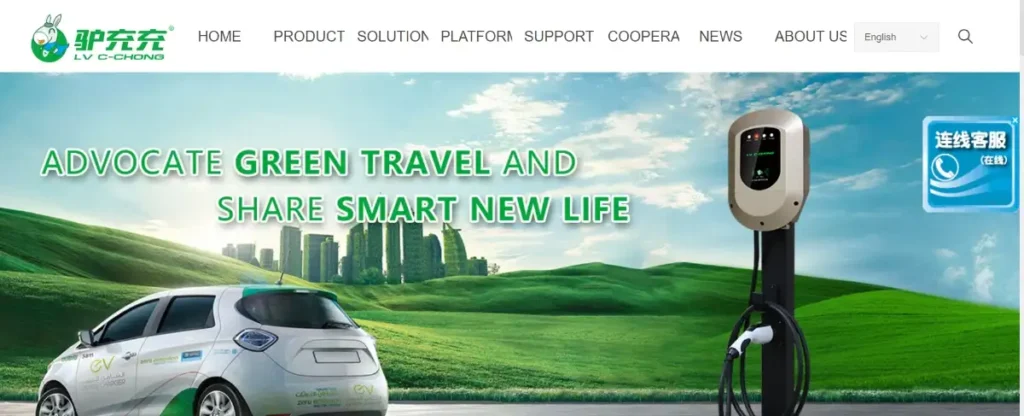
LuCharge is a new energy technology company based in China. It was founded in 2018. They focus on improving charging services for electric car users. This helps the environment by encouraging clean energy transportation. They research, develop, make, and sell charging equipment. They also build and manage networks of charging stations. They offer various chargers, including slow and fast ones, and they create new ideas to make charging easier and smarter.
LuCharge is always looking for new and better ways to provide charging services. They want to make charging electric cars more convenient and enjoyable for users. By doing this, they help the electric vehicle industry grow. They also encourage more people to switch to clean energy transportation.
TELD:
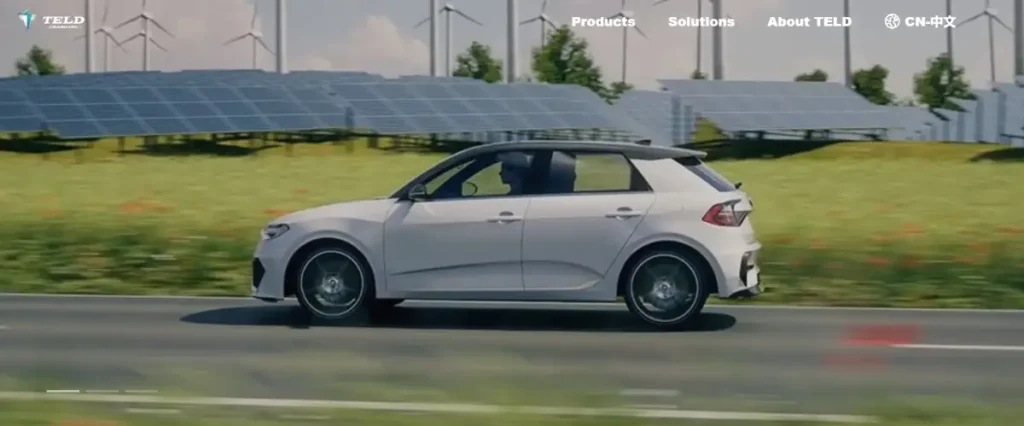
TELD is a subsidiary of TGOOD. It is the first company listed on China’s Growth Enterprise Market with stock code 300001. It was founded in 2014 and is a new unicorn enterprise in infrastructure. TELD got into EV charging early. TELD invested 11 billion in 9 years, with 2 billion for R&D. They want to be China’s biggest charging network operator. TELD’s business includes researching, developing, producing, and selling charging station equipment. They also construct and operate charging networks, offering AC and DC chargers to meet various user needs.
Xiaofeng Charging:
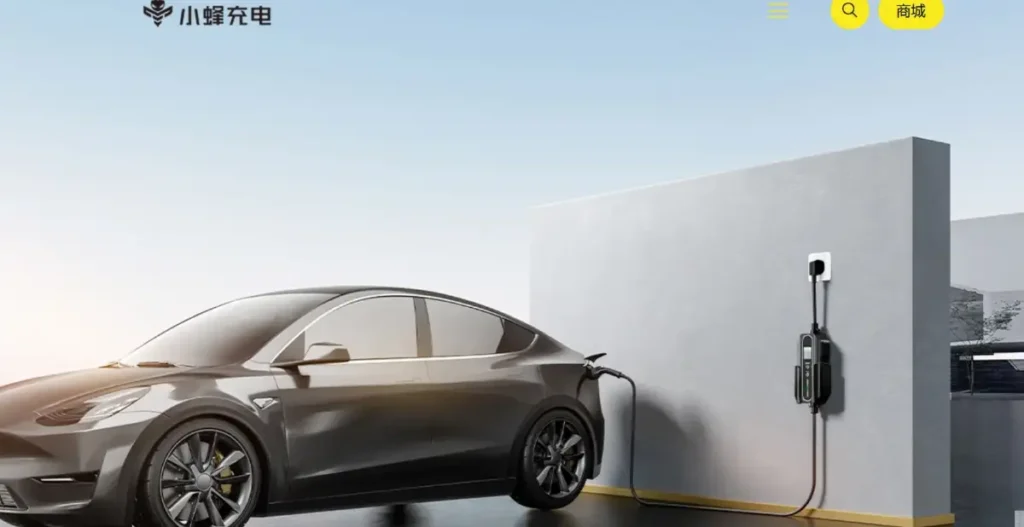
Xiaofeng Charging was founded in 2020. They focus on making charging easy for EV users to help clean energy transportation. Our business includes developing, producing, and selling charging station equipment. They also construct and manage charging networks. Their goal is to make EV charging better and help clean energy transportation grow. They do this by being innovative and ensuring quality.
EAST:
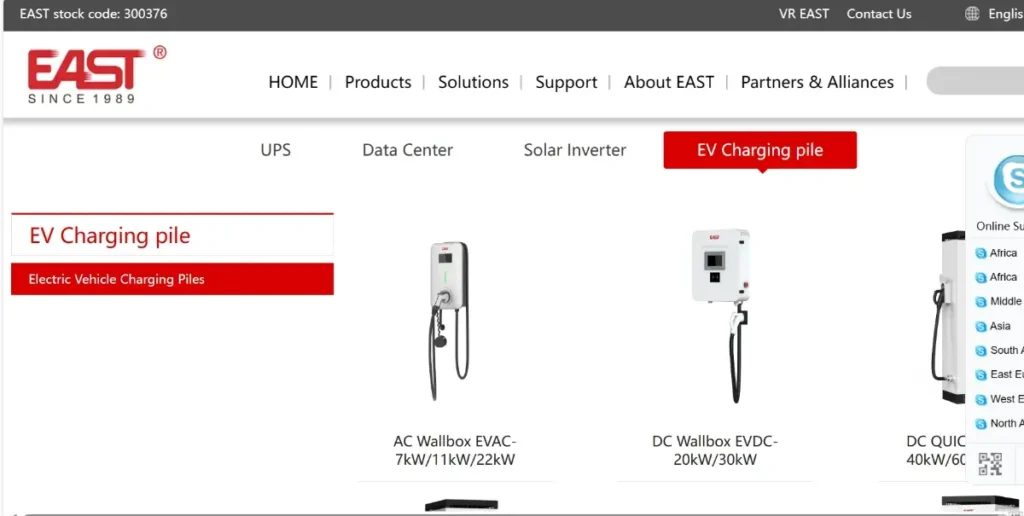
East was founded in 1989. They are involved in three main business areas. East focuses on providing power solutions for modern technologies. They ensure that these technologies, like 5G networks, have reliable power sources. They also work in the data center industry, helping to build and manage places where lots of digital information is stored and processed.
Moreover, they’re involved in smart energy. Additionally, they work on smart energy. They produce solar inverters, batteries, charging stations, and energy distribution systems. In short, East improves the digital and energy industries. It makes operations smarter and more efficient.
Star Charge:
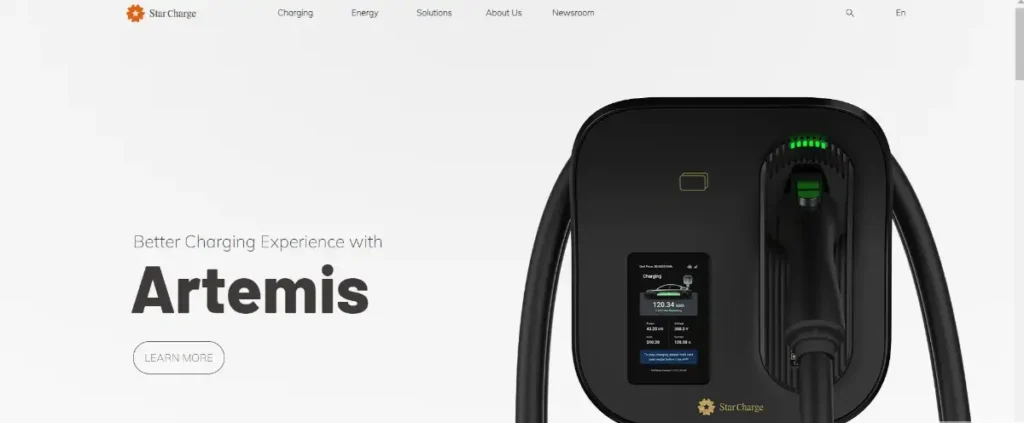
Star Charging is a top electric vehicle charging provider and operator in China. They provide efficient, smart, and convenient charging services. These services are available in cities, highways, and commercial areas. Star Charging has both AC and DC charging stations to meet different user needs. With their smart charging platform, they can monitor and manage charging stations from afar. This helps the electric vehicle industry expand and encourages the use of clean energy.
Bottom Line
That concludes the brief overview of the top EV charging station companies in China. These companies play a crucial role in constructing charging infrastructure and providing charging services as the electric vehicle market continues to grow.
They are committed to offering more convenient, faster, and smarter charging solutions, driving the development of the electric vehicle industry. With the increasing adoption of electric vehicles and growing demand, these companies will continue to play a significant role in China’s EV charging landscape.

